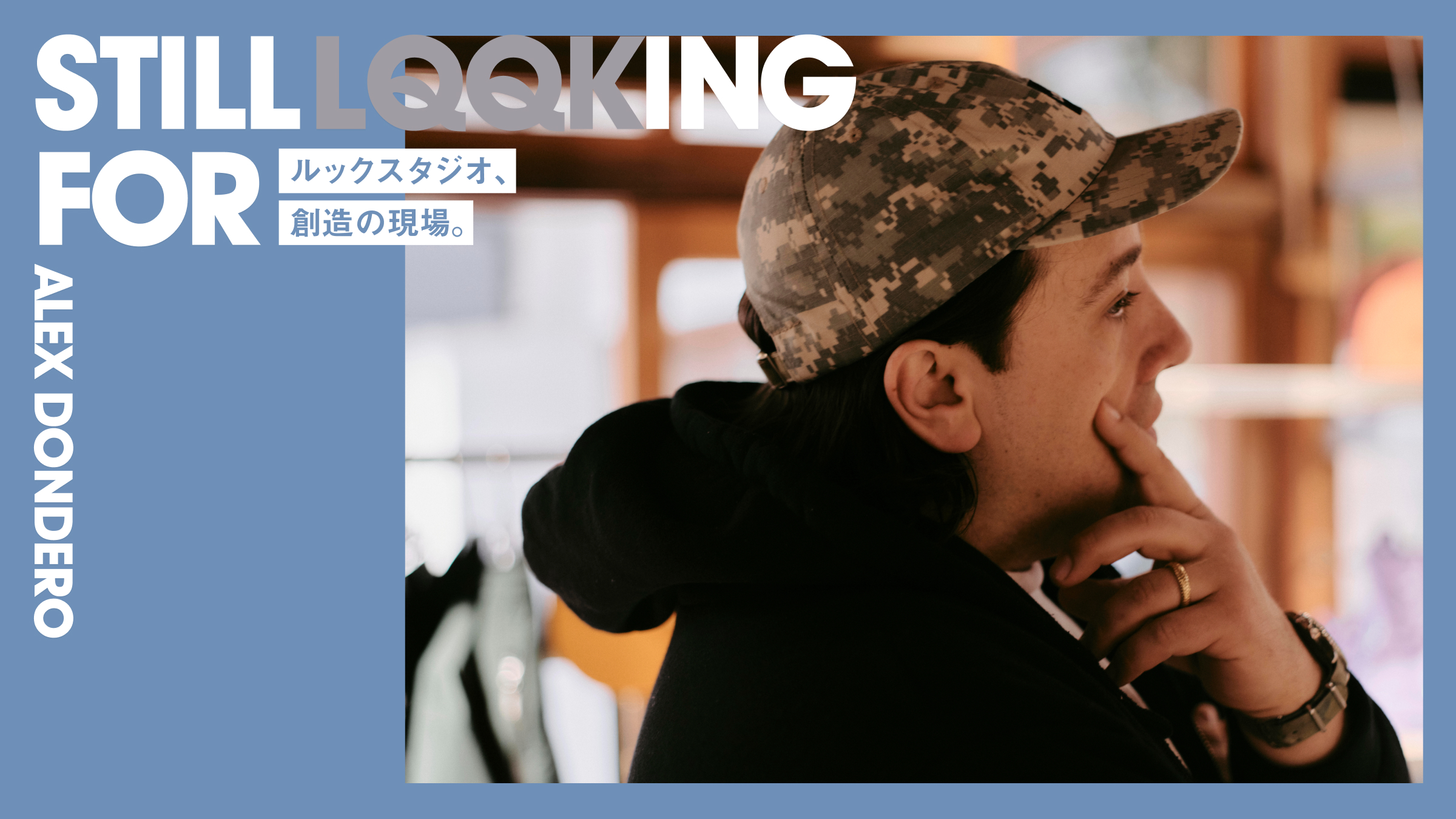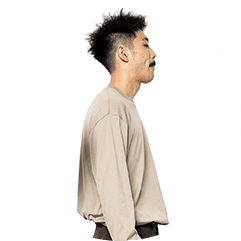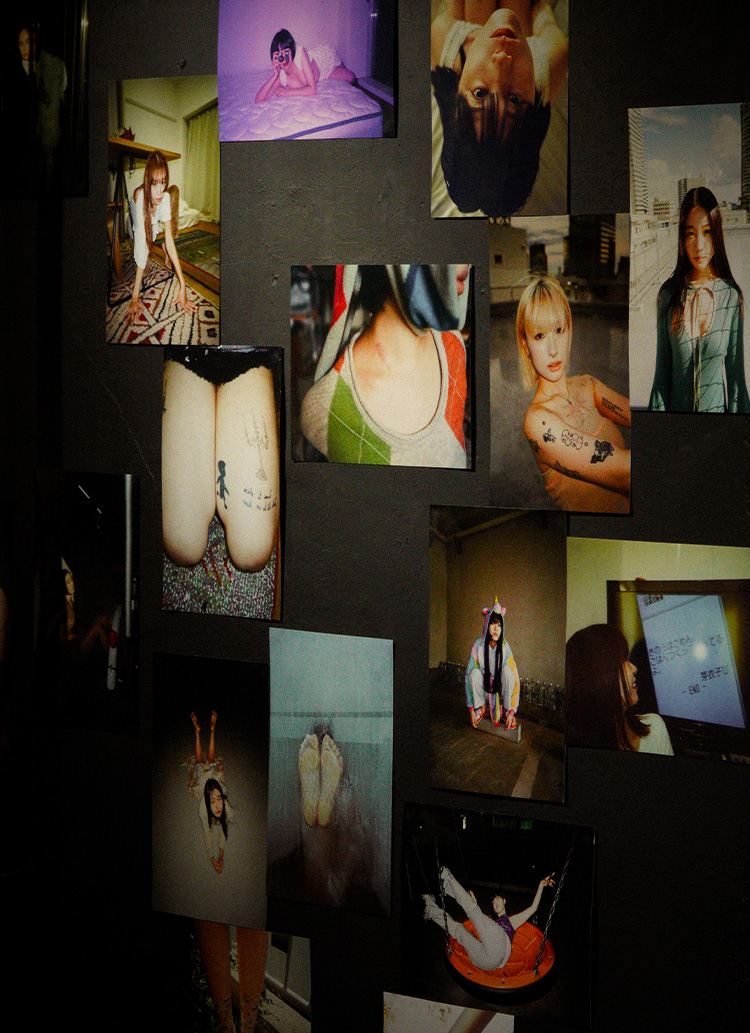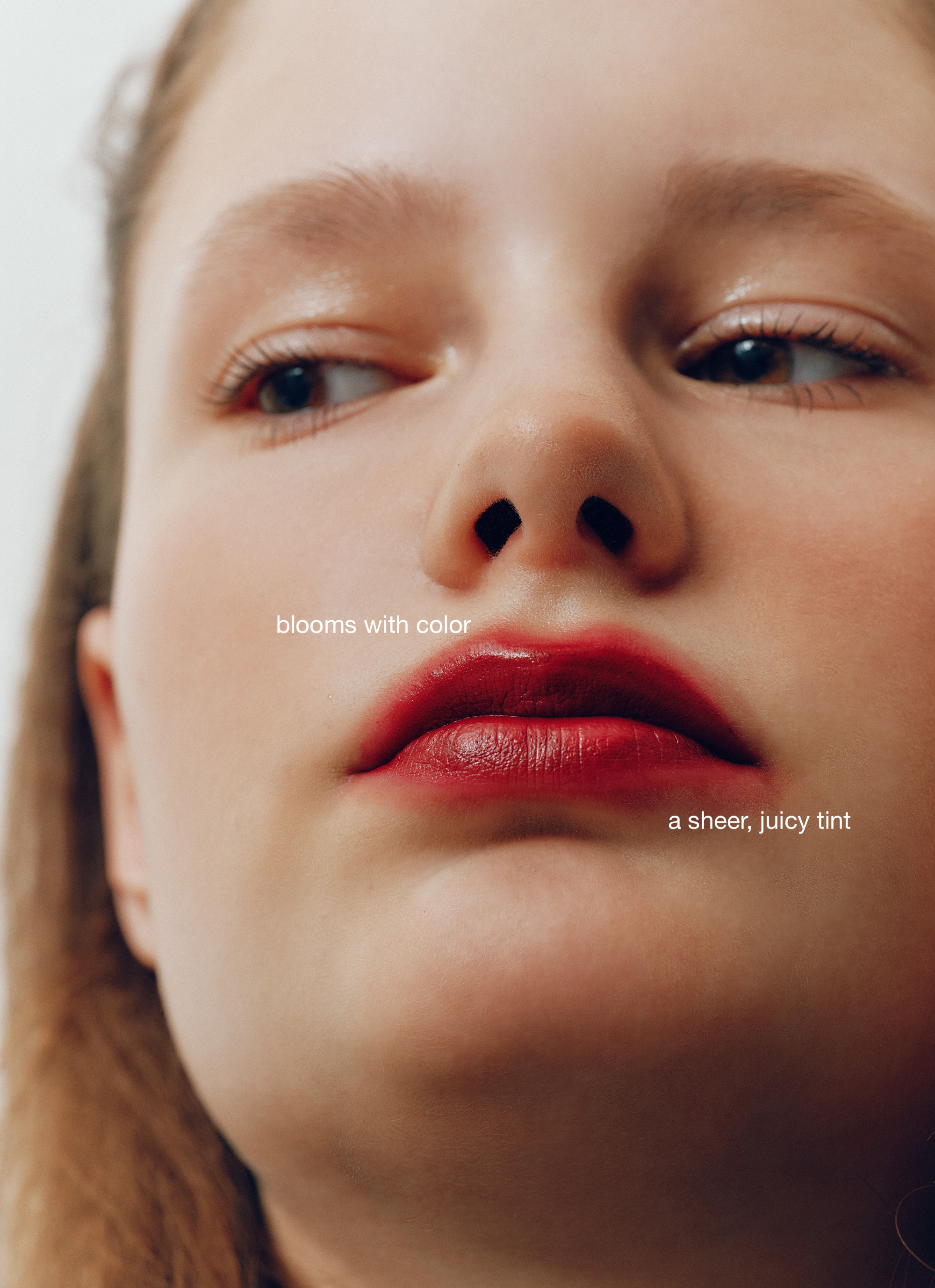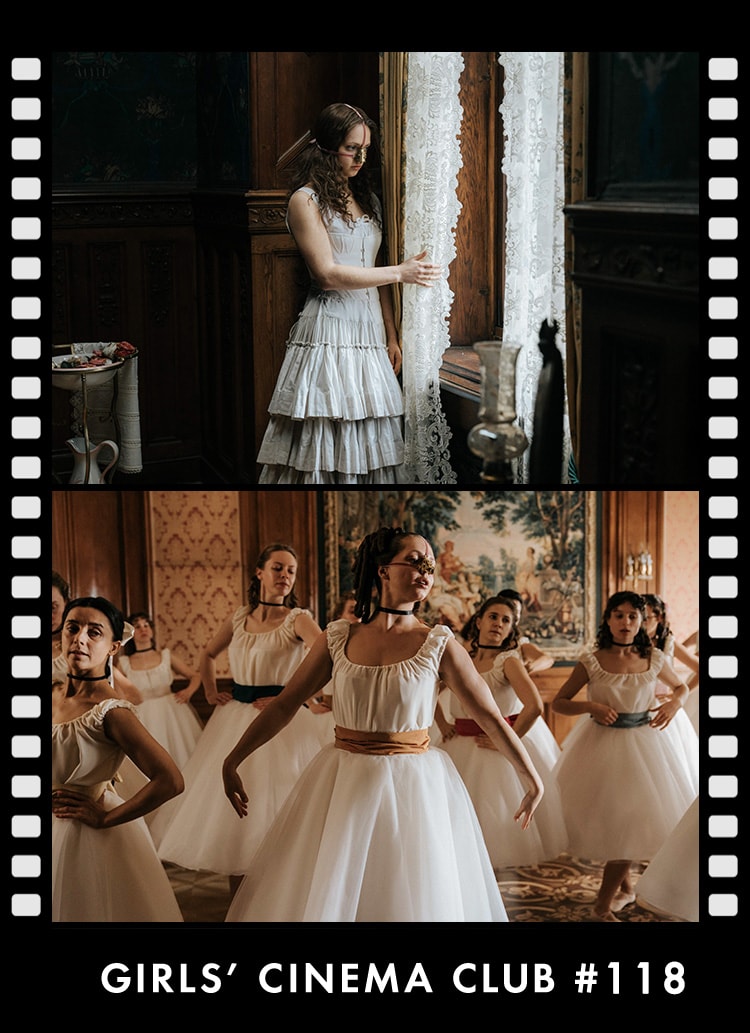
PROFILE
(Alex Dondero)
Born in 1986 and originally from Philadelphia, he received his trademark in 2011, but according to him, "I forgot about it until recently, but I was actually already doing it as 'Look Studio' about two years before that. Based in Brooklyn, he runs a one-of-a-kind print studio that creates its own community and culture.
The studio name is a visualization of the word.
That's what I'm doing," he said.
- Thank you for taking the time to meet with me since I just arrived in Japan! I'm sure everyone knows about "Look Studio," but not many people are familiar with Alex, so can you please introduce yourself again?
That's right. I'm Alex Dondero, founder of Look Studio. Look Studio has several different elements and communities, like print, design, and music, and my role right now is kind of a curator of all of those elements. I'm the founder, but I feel like I specialize more in that than in other roles.
- Is it correct to say something like "creative group"?
That's the thing. We are always doing strange things. Nowadays, we are more like a creative agency, and I don't think we are necessarily a collective, but I think there is a great collective energy that attracts people. My background is in that kind of collective energy, and that's what guides me.
- I think the profile of 〈LOOK STUDIO〉is often described as a "New York print studio".
I think calling us a "print studio" is a good way to introduce ourselves. The reason is that it would be boring if we were just a "brand. We hope that people who buy and wear our clothes will like what we do and the creative aspects of what we do. The print studio is our core, central element, and Look Studio is hands-on. We don't want to lose this grassroots element, so if people think we're just a print studio, that's great.
- I see. Speaking of which, did you have a reason for coming to Japan this time?
I think it is very important for the growth of Look Studio to talk regularly with the people I work with and to see the current situation with my own eyes. Especially in the Japanese market. As with everything, my approach has always been to do everything directly by myself, literally. So now I am trying to evolve and learn to work with a larger team and to rely on others to help me. So I think it's meaningful to be present in those situations. It gives me inspiration. I'm always in New York, so every time I come to Japan, I get a different perspective, which is also a source of inspiration. Sometimes it is important to pull yourself away from your base and work outside of it.

- I totally understand. What are you most looking forward to in Japan?
That's a good question (laughs). I guess it's the food, isn't it? I love going to restaurants here. And then there is shopping. In Japan, there are a lot of good brands and people who are doing new brands, and you get to experience those things, but it's hard to get the same experience in New York. I like to look at the stores and see how other people are making their stores. So I guess I look forward to going out on the town itself. Then there is the nightlife. Many people may think that people in New York stay up late at night, but in reality, not many people do that nowadays. At least among my friends, people don't do reckless things anymore.
- Tokyo might not have as many as before, either.
Still, there are parties that amaze me every time I come, and yesterday, even though it was Monday, I was out there until about 4 or 5 in the morning.
- I'm glad you're enjoying your stay in Tokyo (laughs). What kind of members are there in "Look Studio" now?
In terms of our regular business of print store and design, Wilder Smith, Toya Horiuchi, Max Neuhoff, and Henry Plesser are our regular members. What they do for us is the studio's business. What they do for us is the business of the studio itself. The rest are Joe Garvey, Paul Bryant, and Max, who have been helping us with the brand for a long time now. Bryant, and Max Max Feuer.) And there are a lot of interns and other people, and they hang out while we're working. It's always like, "We're working, so everybody be a little quieter" (laughs). But they give us ideas, they share their thoughts, and they are a good influence. I don't hire them or pay them, but the studio and the brand exist because of them. I don't know the exact number, but Look Studio is made up of a lot of people who come to visit.
- It's like Wu-Tang. The energy and the feeling of not being able to see the whole picture.
(Fuck Yeah! Then I'm RZA.

- (Laughs). Where people come and go, there's a lot of energy and ideas.
Recently, I started a café with two friends in New York. If there is a place like this where people can just go and buy coffee, people will naturally talk with each other and leave flyers for their upcoming parties. The "Domicile Tokyo" that I am talking about now also has a lot of young people. TOKYO," which I am talking about now, has a lot of young people working there, and they are involved in various other things as well. It is really important to have a hub where you can find out about new brands and designers, what kind of parties they go to, and so on. We are doing that in New York.
- It is the same in every region. Also, this is about Look Studio's apparel. I feel that you are increasing the quality of both the traditional prints and the finished products.
For me, being able to produce quickly is the beauty of a print store, and I have always liked using pre-made blanks to make graphic T's. Having blank bodies available at all times is important to our creative process, and I can't imagine myself making custom T-shirts at the moment. Even if I did, the finished product would be made by Los Angeles Apparel or Bay Area Apparel. I don't really see the point in doing it because the finished product would be almost the same as something you can buy elsewhere.
- I see. It is true that you don't have to go to the trouble of creating something that already exists in the world.
But if it's not for printing purposes, I like to make it upward compatible. Just because we are a print store doesn't mean we have to print everything. What I'm aiming for is a situation where both are available and easy to provide. As I get older, I don't always want to wear a printed T-shirt, and sometimes I want to wear a plain, rugby-weight long T-shirt. I think there is value in having cut-and-sewns available when I just want something simple. That accessibility is the origin of the print store, it's part of our DNA. The reason we print T-shirts without tags sewn on is because we print everything and we really enjoy it.

- It fits very well. You mentioned your age earlier, but you were very young when Alex started Look Studio, weren't you? I would be very interested to hear as much as you can remember about how you came up with the idea at that time.
I was studying printmaking at college in Baltimore at the time, but I was also in a band and in the Baltimore music scene, so I was often asked to make posters for shows and parties. I was in the Baltimore music scene, and I was often asked to make posters for shows and parties, and I realized that I could be involved in the cultural scene in a way that I had a specific reason for doing. So I wanted to pursue that. After working on posters for a while, I started getting asked, "Can you make T-shirts too? I started printing T-shirts for people. I was still living in Baltimore at the time, but I decided I wanted to make printing my career, so I moved to New York after graduation. When I needed to find people to share a space where I could work with the equipment I bought, I found four people who needed the same thing. From there, it just kept expanding. That was the answer.
- I can imagine what it was like back then. So, why did you choose the name "LQQK STUDIO"?
That's a secret (laughs).
- Really? I'm curious.
The idea itself was that I liked the way the "QQ" looked like an eye. Visual Cue language. There used to be a website called "Work" that I used to visit a lot. It was a website that introduced contemporary art, and it was spelled "VVORK," with two V's, like "W." It's pronounced "work," but it's not spelled like that. It is pronounced "work," but spelled differently. I liked the idea of playing with letters to make it look like something else, and I thought it was a great name. The word "LOOK" also means a visual clue to the eye, and the idea is that the shape looks like an eyeball. But it's spelled "LQQK"! The audience would respond, "What do you mean? And when I actually show them the letters, they are convinced. And if I show them the actual letters, they are convinced. The name of the studio is like a visualization of the word, and it connected with me, and I thought, "That's what I'm doing.

- 1
- 2


